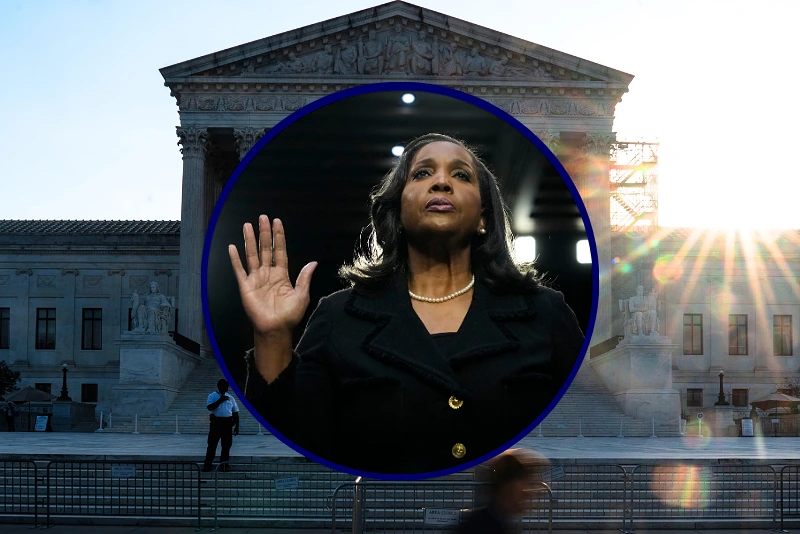
OAN Staff Brooke Mallory
3:01 PM – Thursday, November 13, 2025
The U.S. Supreme Court (SCOTUS) announced on Wednesday that it will hear oral arguments on January 21, 2026, in Trump v. Cook, a media-frenzied case testing the president’s authority to remove members of the Federal Reserve Board of Governors.
The dispute stems from President Donald Trump’s dismissal of Federal Reserve Governor Lisa D. Cook, who was appointed by former Democrat President Joe Biden and confirmed to a 14-year term on the Fed Board.
Trump has primarily addressed the allegations against her through social media posts on Truth Social, as well as a formal termination letter he made public. The controversy began in August this year, when Federal Housing Finance Agency (FHFA) Director Bill Pulte accused Cook of falsifying mortgage applications for properties in Michigan, Georgia, and Massachusetts by misrepresenting them as primary residences to secure better loan terms.
Soon after, Cook challenged the firing, arguing that it violated the Federal Reserve Act, which allows removal of a governor only “for cause” — meaning inefficiency, neglect of duty, or malfeasance in office. However, if allegations against her are proven true, mortgage fraud would constitute malfeasance in office, as it involves deliberate dishonesty in financial dealings.
A federal district court in Washington, D.C., previously granted Cook’s request for a preliminary injunction blocking her removal, and in September, the D.C. Circuit Court of Appeals declined to stay that order. The Trump administration then asked SCOTUS to intervene.
In its filings, the GOP administration also argues that the president retains broad Article II authority to remove executive officers, even in independent agencies, and contends that the allegations surrounding Cook’s 2021 mortgage applications — which she still denies — constitute sufficient cause.
Cook’s legal team argues that Congress explicitly limited presidential discretion to ensure monetary policy remains insulated from short-term political pressure. She remains on the Fed Board pending the outcome of the case.
The Solicitor General, D. John Sauer, will argue the government’s side, while Cook’s counsel includes Abbe Lowell, a veteran D.C. appellate lawyer, and Norm Eisen, a Brookings Institution “ethics expert” and litigator in separation-of-powers cases.
Stay informed! Receive breaking news alerts directly to your inbox for free. Subscribe here. https://www.oann.com/alerts
What do YOU think? Click here to jump to the comments!
Sponsored Content Below

